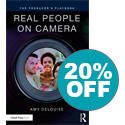Big Data and Social Change
 With whistleblower or traitor (take your pick) #edwardsnowdon in the news this week, everyone’s talking about our government collecting Big Data. But guess what? Google, Verizon, Facebook, CVS Pharmacy, Giant, Safeway and all the rest have been doing the same thing all along. The difference is this: these companies are monetizing our habits, but we aren’t. Hey come on, people, why do you think Facebook and Google and Linked In are free?! At least the local pharmacy and grocery store offer me discounts in exchange for my personal buying habits. Jaron Lanier’s thoughtful and interesting article in the New York Times this week Fixing the Digital Economy got me thinking. He talks about how we could build a new, robust middle class if we stop giving away all our personal data for free, and letting only big players and their investors reap the rewards. (Ironically, Facebook’s investors aren’t rich enough yet.)
With whistleblower or traitor (take your pick) #edwardsnowdon in the news this week, everyone’s talking about our government collecting Big Data. But guess what? Google, Verizon, Facebook, CVS Pharmacy, Giant, Safeway and all the rest have been doing the same thing all along. The difference is this: these companies are monetizing our habits, but we aren’t. Hey come on, people, why do you think Facebook and Google and Linked In are free?! At least the local pharmacy and grocery store offer me discounts in exchange for my personal buying habits. Jaron Lanier’s thoughtful and interesting article in the New York Times this week Fixing the Digital Economy got me thinking. He talks about how we could build a new, robust middle class if we stop giving away all our personal data for free, and letting only big players and their investors reap the rewards. (Ironically, Facebook’s investors aren’t rich enough yet.)
But what if Big Data could move the needle even more, and not just benefit the middle class? What if it could change the world for the seemingly permanent underclass?
Nonprofits need to start harnessing Big Data to serve mission-driven outcomes. Only that can topple this robber-baron economy we have created. In a knowledge-based economy, it’s important to know what people are thinking and doing. And if you’re selling change, that becomes even more critical. In fact, collecting and understanding data is really just another way of looking at and telling your Mission Story. (Sidebar: fabulous blog post about mapping data and storytelling by @eSpatial–I now reveal my wonkiest side!)
Of course correlation and causation are two different animals–just because most axe-murderers drink milk doesn’t mean milk turns you into an axe-murderer! So you need quantitative data–real people collecting real stories of what is happening in the field–to know the difference. And you don’t just want to collect data on your own programs; you need to know who else has tried certain approaches to the very same issues your nonprofit is working on–whether it’s homelessness or environmental degradation or education for girls in Africa. Organizations are turning to tools like Flux or Social Solutions or a mapping tool to build their own data–even while they are out in the field changing the world. But collective data-sharing would be even more effective, and less costly wouldn’t it? It’s the direction in which the philanthropic and nonprofit sector is moving and I think really must move to be effective. Places like Global Impact Investing Network and others are already doing it. More should follow. And every nonprofit umbrella association can be doing the same.





Leave a Reply
Want to join the discussion?Feel free to contribute!